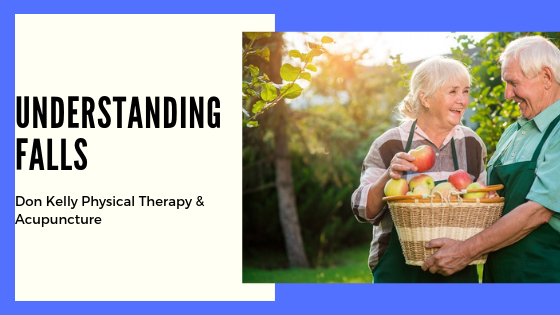There are many reasons why people fall. This article is designed to give you a better understanding of these reasons. But remember, just because you are reading this, doesn’t mean all of these reasons apply to you. It might not even mean that you have had a fall. But the more you understand, the more power you have to control it.
Joint degeneration
One of the most common causes of falls, particularly as we get older, is wear and tear in our joints. Perhaps you have been told you have arthritis. Our bodies are incredibly sophisticated. Within every joint are little receptors which help you to control your balance. This function is called proprioception. These little receptors are constantly talking to your brain, telling you what positions your joints are in. As joints start to degenerate, these receptors are affected and so this feedback mechanism that your body is so reliant upon is inhibited. As a consequence, your body becomes more and more reliant upon your muscles to compensate for this loss.
Muscular weakness
Without your muscles your skeleton would not be able to stand up. Your
muscles don’t just provide you with strength, they also provide you with control.
What’s the distinction? Well, strength gives you power, control allows you to
react to other forces to keep your body in the same position.
Weak muscles reduce your ability to stay upright and react to other factors such
as uneven surfaces and unexpected obstacles.
Dizziness
There are many reasons for dizziness. This is a whole topic in itself. You may feel dizziness due to issues with your blood pressure. Similarly you may feel dizziness due to other issues such as an inner ear problem or a neurological condition. There are many causes. If you suffer from dizziness the main thing is to be aware of when your dizziness can occur, if you can identify this. For example, those with postural hypotension will feel dizzy when they change from a lying or sitting position to a standing position. The main thing is not to rush things when you have a dizzy spell. Get yourself into a safe position such as sitting until it has passed by. And keep breathing!
Sensory problems
You may suffer from sensory issues such as numbness in your feet. This affects your body’s ability to understand the environment you are walking on. If you stand on an uneven paving slab, your feet will not have the mechanisms in place to alert your body and react to this wobbly surface.
Visual problems
Most of us rely heavily upon our eyes for balance and to scan our environment for hazards. Therefore if your eye site is hindered for whatever the reason may be, this makes you less able to see hazards and navigate yourself away from them.
Confusion
Those with confusion may find it harder to react to hazards or comprehend a safe or unsafe environment. It may be advised that an individual have close supervision and an assessment of their safety in order to ensure they are not exposed to unnecessary harm.
Medications
Medications can have side effects. Some medications may cause the symptoms mentioned above such as dizziness, muscular weakness, confusion and visual problems to name a few. It is always good to be aware of the potential side effects of your medication so that you are better prepared if you do experience any, and better informed should you need to return to your prescribe.
What can I do?
There is always something you can do to reduce your risk of falling. First and foremost is understanding the most likely contributing factors to your risk. Once you understand this, you can better treat it.
Use An Aid
Don’t be afraid to use an aid. A lot of people will look at walking sticks or frames as a
backwards step. The reality is these aids will keep you on your feet for longer. If you are starting
to feel more and more vulnerable, an aid can provide you with the stability and confidence you
need to be able to continue going to the shops, your job or even just about the house. What
would you rather, lose your independence or use an aid?
Eye Check
Get your eyes checked. Vision usually deteriorates slowly. This means that
you may not notice that you aren’t able to see so well. Getting your eyes checked
regularly will monitor this and ensure you are doing the best by your eyes when
it comes to keeping them in good health.
See your doctor
As previously mentioned dizziness can be caused by many different reasons. It is important to get this assessed in order to understand the cause. And of course see your doctor if you start to notice any of your symptoms worsening. You may need adjustments to some of your other treatments. It’s much easier and safer to do this when you recognise the early warning signs, than after you have had a fall
See your physiotherapist
Talk to your physiotherapist for an exercise program.Exercise is important to strengthen your muscles and to train your balance. There are very basic yet effective exercises that you can do at home. Tie them into other activities you already do such as watching television, making toast, or brushing your teeth.
Safe environment
Unnecessary steps, rugs and furniture can increase your chance of having a trip. A simple rail may help you up a step, a change in the way your furniture is arranged can open up walkways in your house and hide pesky table legs that want to trip you up! Ensure your electrical cables are neatly tucked away from the floor and clutter is removed. Don’t leave it any longer. Start making steps to stay on your feet today!


